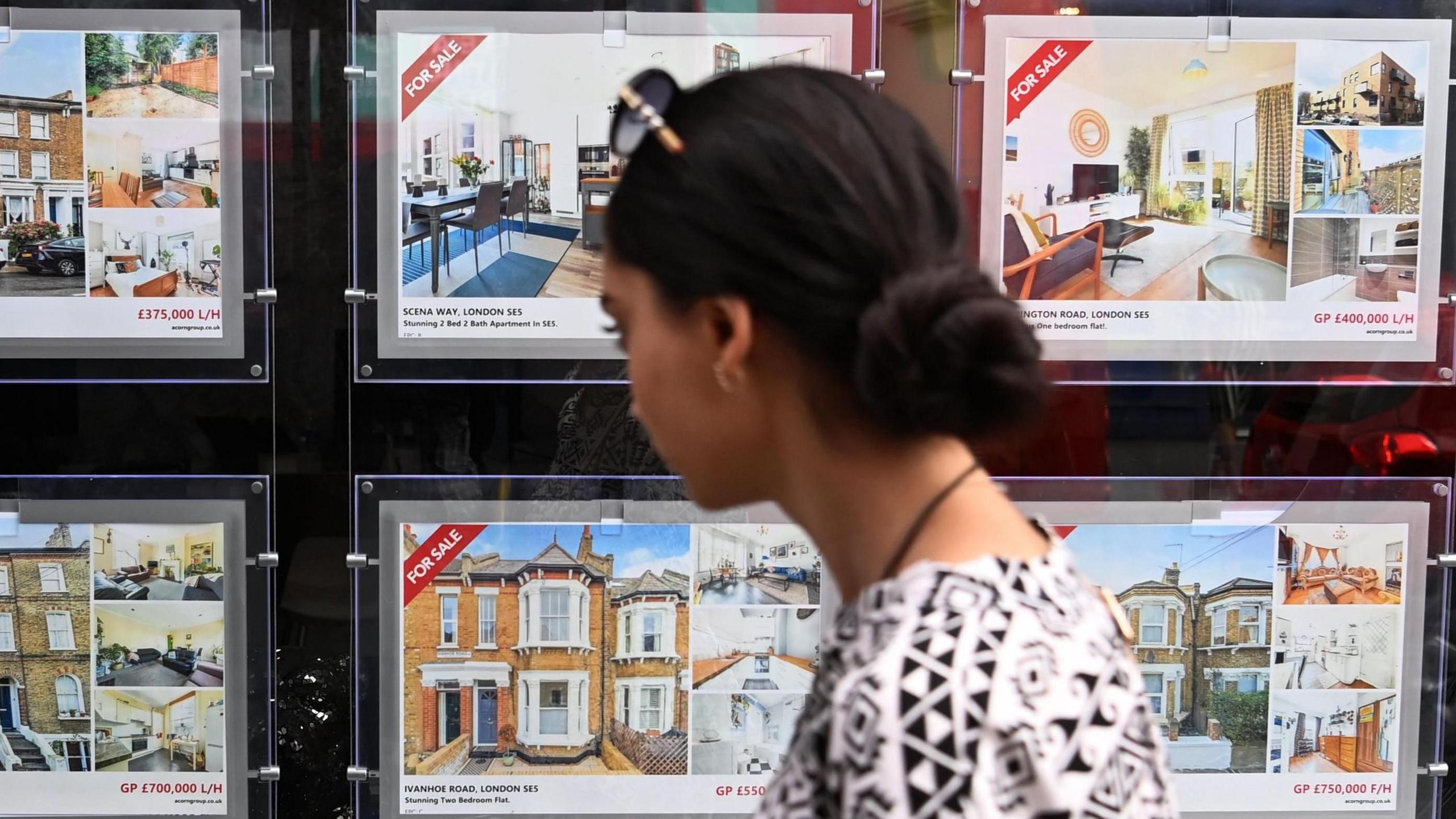Mortgage costs to rise for 3 million, says Bank

- Published
About three million households are set to see their mortgage payments rise in the next two years, the Bank of England has said.
The Bank's latest Financial Stability Report, external also said about 400,000 mortgage holders are facing some “very large" payment increases.
Renters also remain under pressure from the higher cost of living and higher interest rates, the report found.
However, the Bank said that overall risks to the UK financial system were broadly unchanged, and businesses and households have remained resilient to the impact of higher rates.
The Bank found that about one third of mortgage holders in the UK, more than three million, are still paying rates of less than 3%.
These will mostly be people who arranged mortgage deals before the Bank of England started to increase interest rates in late 2021.
These mortgages are now expiring, and the Bank said the majority of fixed-rate deals will finish before the end of 2026.
For the typical household, monthly mortgage repayments are forecast to increase by about £180, or about 28%.
However, for around 400,000 households, monthly payments could jump by 50% or more.
Despite this, the amount of people struggling to pay their mortgage is still expected to stay below levels seen after the 2008 global financial crisis.
"The overall share of households who are behind in paying their mortgages remains low by historical standards," the Bank says.
The report comes after three major lenders began reducing mortgage rates this week, following hints of a summer interest rate cut by the Bank of England.
HSBC, NatWest and Barclays all cut the cost of fixed-rate home loans for new deals.
"The stark reality is that a lot of people have yet to come off ultra-low rates [and move] on to the higher rates available today. When they do, there is going to be a lot of payment shock," said Emma Jones from mortgage broker When The Bank Says No.
"Even though this week has seen major lenders reduce rates across the board, [rates] are still far higher than what many people are paying now. The irony is that the Bank of England has the power to help the very people it is talking about.”
Read more on mortgages
HSBC joins UK banks in cutting mortgage rates
- Published25 June 2024
Surge in ultra-long mortgages among under-30s
- Published13 May 2024
The Bank's report found that the proportion of people falling behind on rental payments has risen from 15.7% to 16.5%.
This is said to be the result of landlords passing on the cost of higher mortgage interest rates to their tenants.
Higher rents have resulted in "savings buffers for renters and low-income households" being further eroded in the six months to the end of March this year.
It also said that research suggested that many renters and lower-income households "intend to run down their savings even further in the next year to deal with the increased cost of living, making these groups less financially resilient".
'Global vulnerabilities'
Overall, the Bank said that UK banks were still in a good position to assist businesses and households.
"The UK banking system has the capacity to support households and businesses, even if economic and financial conditions were to be substantially worse than expected," its report said.
The Bank highlighted some "global vulnerabilities", including political uncertainty in the UK and abroad, that could affect the sector.
It said upcoming elections worldwide could "lead to financial market volatility".
While the Bank said that risks to the UK's financial system were "broadly unchanged" since the first three months of the year, prices of assets such as shares and bonds have continued to rise.
Investors are "putting less weight on risks, such as geopolitical developments or continued high inflation", the report said.
It warned that these risks "make it more likely that there could be a sharp correction in asset prices that could ultimately make it more costly and difficult for UK households and businesses to borrow".
Get in touch
Have you been affected by rising mortgage payments?

Ways to make your mortgage more affordable
Make overpayments. If you still have some time on a low fixed-rate deal, you might be able to pay more now to save later.
Move to an interest-only mortgage. It can keep your monthly payments affordable although you won't be paying off the debt accrued when purchasing your house.
Extend the life of your mortgage. The typical mortgage term is 25 years, but 30 and even 40-year terms are now available.